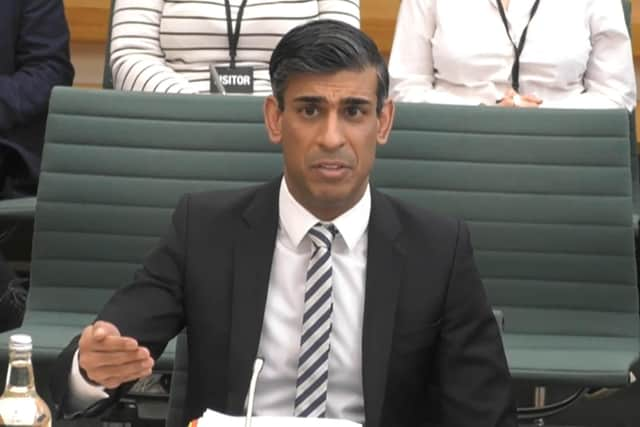Cutting higher LBTT rates could boost economy - David Alexander


Following reaction to his recent Spring Statement – which generally ranged from lukewarm to hostile – comes the revelation that his wife, Akshata Murty, is a registered “nom-dom” (i.e. a resident rather than citizen) and as a result does not pay any tax on income earned outside the United Kingdom.
Now it has to be repeated that Mrs Sunak has done nothing that is illegal, even though the Indian company from which she draws dividends (owned by her father) has won several valuable contracts in the UK. And, of course, so much is about perception nowadays and this just doesn’t look good given the country’s economic circumstances, not just on the factory floor or among shop assistants or general admin staff but also those higher up the employment pecking order.
Advertisement
Hide AdAdvertisement
Hide AdMortgage affordability is generally thought of as an issue affecting “ordinary” homeowners but it now seems lenders will be increasing their focus on higher earners as they adjust their affordability criteria in the wake of increased costs.


While much of the focus on the Spring Statement was on National Insurance rates, little or no attention was given to a 1.25 per cent on dividend tax, taking it to 39.35pc for higher rate taxpayers. This, effectively, is the latest raid on dividend payments from 2015 when George Osborne reduced the allowance from 10pc of income to a basic £5,000 for everyone, which was then reduced to £2,000 three years later, a move that mostly adversely affected higher earners.
Those more likely to be affected are company directors in Scotland, the most-taxed part of the United Kingdom, where the higher income rate tax of 41p kicks in at £43,000, compared with a higher rate of 40pc in England and Wales and which does not start until earnings exceed £50,000. The top rate, which starts north and south of the Border at £150,000 is 46pc in Scotland compared to 45pc in England and Wales.
For the company director or business owner earning a substantial income (and no doubt working hard for the privilege) the difference in income tax rates can make a real difference to disposable income but it is in the taxation of property sales that Scotland really “excels”.
On transactions of up to £145,000, Scots actually have an advantage over those south of the Border (although the amount of “walk-in” properties available at that price is rapidly decreasing) and there is no difference between that figure and £325,000. But beyond that Scotland becomes increasingly expensive.
Take Edinburgh, where a price tag of half a million pounds is no longer unusual for a bungalow – which if detached is probably slightly above mid-market but still hardly top of the range. A sale in this case would attract LBTT of £23,350 - £8,000 more than if conducted south of the Border. Go a bit further up the scale, to a detached villa costing £850,000 and the tax is more than £60,000 – almost £28,000 more than an equivalent sale in England. Even a successful small-business owner – faced with personal tax rises and having to pay more in employer National Insurance – might balk at that.
But my motive is not just to point to the unfairness of the Scottish tax regime but also to its counter-productivity. True, the market has been surprisingly buoyant over the past 18 months but the increases in taxation and the cost of living will almost inevitably lead to a slowdown. How far this will go no one yet knows but, clearly, a stagnant property market contributes hugely to a stagnant economy.
A reduction in LBTT rates above the £325,000 threshold would not only help homebuyers but wider economic activity given the number of white- and blue-collar jobs indirectly related to the property market.
Advertisement
Hide AdAdvertisement
Hide AdIn attempting fix a Britain battered by covid, Mr Sunak has increased the overall tax burden rather than decrease direct taxation to encourage economic growth. Wouldn’t it be great if the Scottish Government showed there is a different way with more realistic higher rates of LBTT? Probably not but at least I can dream.
David Alexander is managing director of DJ Alexander
Comments
Want to join the conversation? Please or to comment on this article.